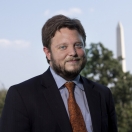download
.mp4 (144.3 MB) | also available
here | read the
transcript
The President is giving remarks at the Holocaust Days of Remembrance Ceremony at the Capitol, watch it streamed live by the Holocaust Memorial Museum.
UPDATE: The President has concluded his remarks. Learn more from the museum's website,or read the full transcript of his remarks.
An excerpt:
While the uniqueness of the Holocaust in scope and in method is truly astounding, the Holocaust was driven by many of the same forces that have fueled atrocities throughout history: the scapegoating that leads to hatred and blinds us to our common humanity; the justifications that replace conscience and allow cruelty to spread; the willingness of those who are neither perpetrators nor victims to accept the assigned role of bystander, believing the lie that good people are ever powerless or alone, the fiction that we do not have a choice.
But while we are here today to bear witness to the human capacity to destroy, we are also here to pay tribute to the human impulse to save. In the moral accounting of the Holocaust, as we reckon with numbers like 6 million, as we recall the horror of numbers etched into arms, we also factor in numbers like these: 7,200 -- the number of Danish Jews ferried to safety, many of whom later returned home to find the neighbors who rescued them had also faithfully tended their homes and businesses and belongings while they were gone.
We remember the number five -- the five righteous men and women who join us today from Poland. We are awed by your acts of courage and conscience. And your presence today compels each of us to ask ourselves whether we would have done what you did. We can only hope that the answer is yes.
We also remember the number 5,000 -- the number of Jews rescued by the villagers of Le Chambon, France -- one life saved for each of its 5,000 residents. Not a single Jew who came there was turned away, or turned in. But it was not until decades later that the villagers spoke of what they had done -- and even then, only reluctantly. The author of a book on the rescue found that those he interviewed were baffled by his interest. "How could you call us 'good'?" they said. "We were doing what had to be done."
That is the question of the righteous -- those who would do extraordinary good at extraordinary risk not for affirmation or acclaim or to advance their own interests, but because it is what must be done. They remind us that no one is born a savior or a murderer -- these are choices we each have the power to make. They teach us that no one can make us into bystanders without our consent, and that we are never truly alone -- that if we have the courage to heed that "still, small voice" within us, we can form a minyan for righteousness that can span a village, even a nation. Their legacy is our inheritance. And the question is, how do we honor and preserve it? How do we ensure that "never again" isn't an empty slogan, or merely an aspiration, but also a call to action?
I believe we start by doing what we are doing today -- by bearing witness, by fighting the silence that is evil's greatest co-conspirator.



